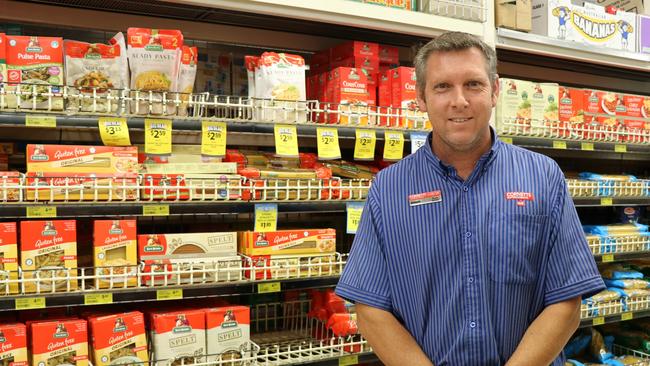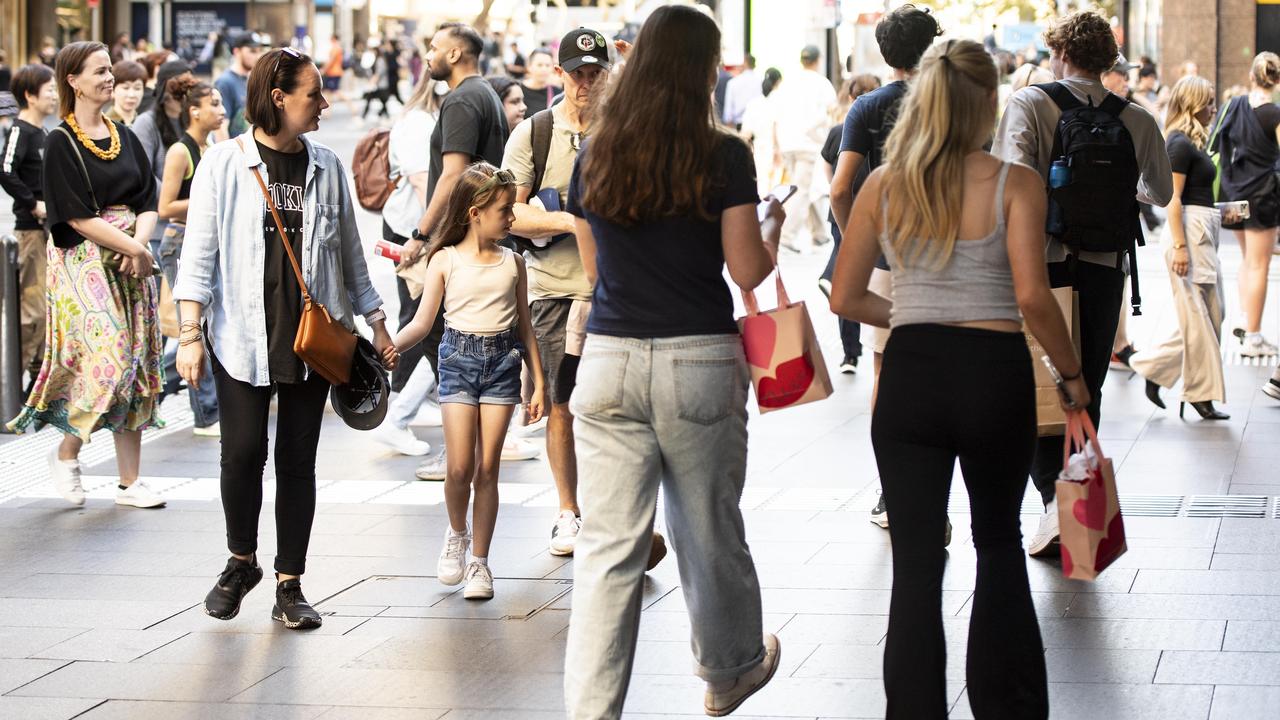Shoppers staying local says Metcash as sales grow
Pandemic pushes shoppers to stay local, with sales boosts across grocery, liquor and hardware, says Metcash.

Metcash chief executive Jeff Adams is investing $375m in his wholesaler’s network of supermarket, liquor and hardware stores to take advantage of the renaissance in neighbourhood shops that is being driven by COVID-19 and which he believes could be here to stay.
Beaten up for years by the majors like Woolworths and Coles, as well as ceding market share to newer players Aldi and Costco, the demographic and economic trends are finally turning to Metcash’s strengths that includes its strong presence in rural and regional Australia that is witnessing a population boom as people exit the cities.
While many new shoppers trying a Metcash supermarket such as IGA or its hardware banner Mitre 10 for the first time through the COVID-19 pandemic, as they avoided the large shopping centres, they liked what they saw and Mr Adams wants to keep them coming back with an aggressive and accelerated store refurbishment program.
Addressing a Metcash investor day on Tuesday, which included a trading update for the first four months of fiscal 2021 that showed a continued momentum of strong sales, Mr Adams said Metcash would now target store refurbishments of 100 to 130 stores between now and 2026, up strongly from around 75 new stores a year just a few years ago.
“We are talking a year on now (from COVID-19) and if you look at the numbers we reported in the trading update versus what others in the market have and clearly this is no longer just a temporary change, there has definitely been a shift in consumer behaviour,” Mr Adams told The Australian.
“I think it is difficult to predict, but all we can say that is a year on we are still performing well, we think many of those factors we have called out are reasons why we have invested in stores to make them more competitive, people have definitely shifted to shopping more locally.”
This was especially the case as people stay away from the CBD and there is a growing demographic trend of people moving homes away from the suburbs to rural and regional locations.
“Our stores tend to be more neighbourhood which plays to that and also more regional and remote areas where … there has been a migration out of the cities to regional and remote areas – and that is where the strength of our network is.”
Metcash is now seizing on this new opportunity and on Tuesday at its investor day unveiled its latest spending and investment plans around its long-running MFuture plan by spending $375m between fiscal 2022 and 2024.
The bulk of that new investment under the MFuture growth program will be directed at hardware, around $225m, $70m directed to grocery, $10m in liquor and $70m across the group in areas such as online. In a trading update and investor day on Tuesday, Metcash also said it was pushing ahead with its MFuture restructure plan, that takes in store refurbishments and cost efficiencies, and was on track to deliver around $50m in cost reductions over 2020 and 2021, excluding the in-store costs related to COVID-19.
Metcash has in addition detailed a capital expenditure program under its Project Horizon plan that will target capital expenditure investment of $70m-$80m over the next two years with around $20m in capex slated for fiscal 2021 and the balance between 2022 and 2023, weighted to fiscal 2022.
This upbeat stance from Metcash flowed from its performance through 2020 when the COVID-19 pandemic triggered a renewed interest by shoppers in shopping locally and in a trading update on Tuesday the momentum has stuck with Metcash and its retail banners.
In the first four months of the fiscal 2021 Metcash said supermarket sales increased 14.4 per cent while total food sales increased 4.1 per cent versus the previous corresponding period (up 14.1 per cent excluding the impact of losing the 7-Eleven contract).
Hardware sales increased 31.6 per cent for the first four months of 2021 with increased investment in customer retention, helping drive continued strong demand in DIY, and trade tracking positively.
Liquor sales have increased 19.6 per cent with continued strong sales in the retail network more than offsetting the adverse impact of COVID-19 restrictions on “on-premise” customers. Sales to the IBA retail banner group increased 23.7 per cent and IBA retail scan sales for the same period were up 20.6 per cent.
For its core grocery pillar, which contributes the largest proportion of earnings for Metcash, the company told investors on Tuesday that there were good growth opportunities driven by accelerating and leveraging current initiatives such as the roll out of new Diamond store refurbishments, better range and price, new smaller store formats and private and exclusive labels.
At its hardware pillar, comprising a national network of 644 stores and banners such as Mitre 10 and Home Timber Hardware, the COVID-19 pandemic had led to a change on the sales mix with a move towards DIY versus trade. In 2018 DIY contributed 35 per cent of business and trade (professionals) was 65 per cent. Today that mix was 40 per cent for DIY and 60 per cent to tradies.
Metcash said it had plans to double the current stable of 88 stores held under the recently acquired Total Tools banner group with a further focus on tradies. Last year Metcash bought a 70 per cent stake in independent hardware chain Total Tools Holdings for $57m.




